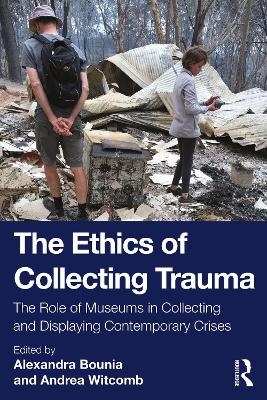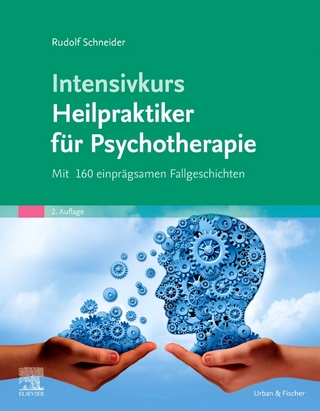
The Ethics of Collecting Trauma
Routledge (Verlag)
978-0-367-68242-2 (ISBN)
- Noch nicht erschienen (ca. November 2024)
- Versandkostenfrei innerhalb Deutschlands
- Auch auf Rechnung
- Verfügbarkeit in der Filiale vor Ort prüfen
- Artikel merken
Including a range of international contributions, the volume explores the ethics of collecting material that documents contemporary traumatic events. The case studies focus on four categories of such events: forced migration; terrorism attacks; major natural disasters; and cultural traumas, such as the ongoing legacy of colonization. Contributors consider whether cultural institutions have a right to collect materials about these events and what kind of materials they should focus on, if so; who is being memorialized, who should hold the power to decide what is collected, and what the critical timeline for such initiatives is. The volume also considers what the larger purpose of such collecting is and how to deal with past collecting practices, arguing that museums need to consider, in a careful and deliberate way, their ethical responsibilities as cultural institutions.
The Ethics of Collecting Trauma will be of interest to academics and students working in the areas of museum and heritage studies, cultural studies, trauma studies, memory studies, and migration studies. The book will also appeal to museum professionals working around the globe.
Alexandra Bounia is Professor of Museology at the University of the Aegean, Greece. Andrea Witcomb is the Alfred Deakin Professor of Cultural Heritage and Museum Studies at Deakin University, Australia.
List of Figures; List of Contributors; Acknowledgements; 1. Introduction: Why a book on the ethics of collecting contemporary trauma is needed; Part I: Natureculture traumas – 2. The crisis that binds us: The ethics of collecting trauma in ‘catastrophic times’; 3. A Future for Memory: Resurgence of culture-nature in the aftermath of 3.11; 4. Mapping memorialisation of pandemic experiences: Care, stewardship and guardianship; 5. Towards a higher standard: Museums, communities of trauma, and the public trust; Part II: Decolonising trauma – 6. Poetics, politics and ethics of collecting: Two Brazillian cases; 7. Engaging with colonial collecting practices today: Practising ‘epistemic disobedience’; Part III: The traumas of war, terrorism and forceful displacement – 8. Ethically contested exhumations in Eastern Zimbabwe: a compromise between spiritual approaches and scientific practices; 9. Silence and Remembering: Locating the Cultural Trauma of Terrorism in London’s Museums, Archives and Memorials; 10. Ethics of care in collecting spontaneous memorials; 11. Collecting (forced) migration: the ethics of collecting ‘neglected things’; 12. Afterword; Index.
| Erscheint lt. Verlag | 5.11.2024 |
|---|---|
| Zusatzinfo | 12 Halftones, color; 15 Halftones, black and white; 12 Illustrations, color; 15 Illustrations, black and white |
| Verlagsort | London |
| Sprache | englisch |
| Maße | 156 x 234 mm |
| Themenwelt | Reisen ► Reiseführer |
| Medizin / Pharmazie ► Medizinische Fachgebiete ► Psychiatrie / Psychotherapie | |
| Wirtschaft ► Volkswirtschaftslehre | |
| ISBN-10 | 0-367-68242-7 / 0367682427 |
| ISBN-13 | 978-0-367-68242-2 / 9780367682422 |
| Zustand | Neuware |
| Haben Sie eine Frage zum Produkt? |
aus dem Bereich


